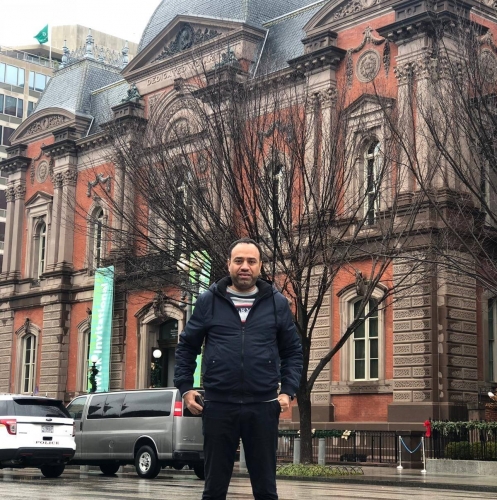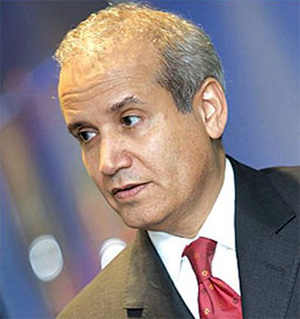Iran said to have utilized confidential IAEA papers to cover up its nuclear activity
Iranian intelligence accessed confidential UN documents and used them to evade and mislead the world body’s nuclear watchdog over 15 years ago, the Wall Street Journal reported Wednesday, citing evidence of the operation uncovered in a huge stash of nuclear documents that Israel seized and spirited out of Iran in 2018.
Reacting to the report, Prime Minister Naftali Bennett called the revelations “a wake-up call to the world.”
According to the report, Iranian officials secured access to International Atomic Energy Agency documents and circulated them among top officials involved in its nuclear program between 2004 and 2006, and were thus able to prepare cover stories, falsify information and gain insight into what inspectors did and did not know.
At the time the IAEA was probing Iran’s nuclear program, which Tehran insists is peaceful, on suspicion that it was being used to develop nuclear weapons. Intelligence officials told the WSJ the documents were marked confidential.
One handwritten note cited in the report was from a senior Iranian official to Mohsen Fakhrizadeh, a top Iranian nuclear scientist and considered the father of its weapons program. The note pushes Fakhrizadeh to provide an explanation to the IAEA as to why the liquidation date regarding a civilian uranium mining company was changed, apparently as part of Iran’s alleged coverup of military nuclear work. Fakhrizadeh was assassinated in a November 2020 ambush near Tehran, in an operation attributed to Israel.
In another example, Iran’s intelligence service warned officials three days in advance to prepare for an IAEA inspection of a heavy-water production site near Arak. Heavy water is used as a coolant in reactors but produces plutonium as a waste product. Plutonium can be used to make atomic weapons.
An IAEA document sent to the Iranian officials on May 19, 2004, included details of information the UN agency had on the site and 18 questions it intended to ask about Iran’s nuclear work. Among those who received the intelligence warning was the head of Iran’s armed forces, Ali Shamkhani, now head of Iran’s national security council.
“Iran could design answers that admit to what the IAEA already knows, give away information that it will likely discover on its own, and at the same time better hide what the IAEA does not yet know that Iran wants to keep that way,” David Albright, who heads the Institute for Science and International Security, told the newspaper.
A former IAEA official told the WSJ that the documents obtained by Iran and seen by the newspaper are authentic.
The documents and accompanying notes in Persian were found among the trove of information Israel squirreled out of Iran’s nuclear archive, according to WSJ. Israel seized over 100,000 documents from a Tehran storage site and said they proved that Iran had been working on producing a nuclear bomb in the past. The US intelligence community has been provided the archive material while partial access has been allowed to independent experts, including the Belfer Center at Harvard University, the WSJ said. In 2019 the Belfer Center said the archive showed that Iran’s nuclear program had progressed further than thought. Some of the documents the WSJ reviewed have not been made public.
The WSJ said it received access to the documents “from a Middle East intelligence agency that hails from a country that opposes Iran’s nuclear program.”
Neither the IAEA nor Iranian officials agreed to comment on the report.
Bennett called on the IAEA to react.
“The exposure of Iran’s systematic program to deceive the IAEA – which was based around documents that Iran stole from the IAEA – is a wake-up call to the world,” the prime minister said in a statement.
“This is additional proof of Iranian efforts to advance toward achieving nuclear weapons. The systematic policy of fraud, theft and concealing evidence by Iran against the IAEA should now become a definitive fact in the eyes of the international community,” he said.
“The time has come for the IAEA Board of Governors to issue a clear message to Iran: Enough!”
Iran has continued to evade some IAEA demands for information about its nuclear program.
Talks between world powers and Iran in Vienna have stalled since mid-March as negotiators seek to return to the 2015 Joint Comprehensive Plan of Action accord that curtailed the Islamic Republic’s nuclear program in exchange for sanctions relief.
The IAEA and Iran announced in March that they had agreed on an approach for resolving issues crucial to reviving the 2015 nuclear accord. The aim is to settle outstanding questions that the IAEA has about the past presence of nuclear material at undeclared sites in Iran.
But earlier this month IAEA head Rafael Grossi told a European Parliament committee his agency was “trying to clarify a number of still open matters with Iran” and that he was “extremely concerned” about Iran’s lack of cooperation.
Former prime minister Benjamin Netanyahu publicized the Mossad appropriation of approximately 110,000 documents in April 2018, declaring that Iran “brazenly” lied to the international community when denying its rogue nuclear weapons program and thus its 2015 JCPOA accord with world powers was founded on “deception.”
The agency’s operatives broke into the building where the trove was housed in January of that year, removed the files and disks, and smuggled them back to Israel the same night.
The acquisition of the documents and files that were seized, which proved that Iran had been working to develop nuclear weapons, was thought to have factored in the Trump administration’s decision to withdraw from the JCPOA agreement in May of that year.
Washington then imposed harsh sanctions on Iran, which responded by dropping some of its own commitments to the accord and accelerating its nuclear program, in particular the enrichment of uranium.
Last week, Israel’s Defense Minister Benny Gantz said Iran is “weeks from enough fissile material for bomb.”
Israel, which opposes reviving the JCPOA and instead backed Trump’s approach of tightening its terms, has said it reserves the right to strike Iran to prevent it from obtaining nuclear weapons.
Agencies contributed to this report.





